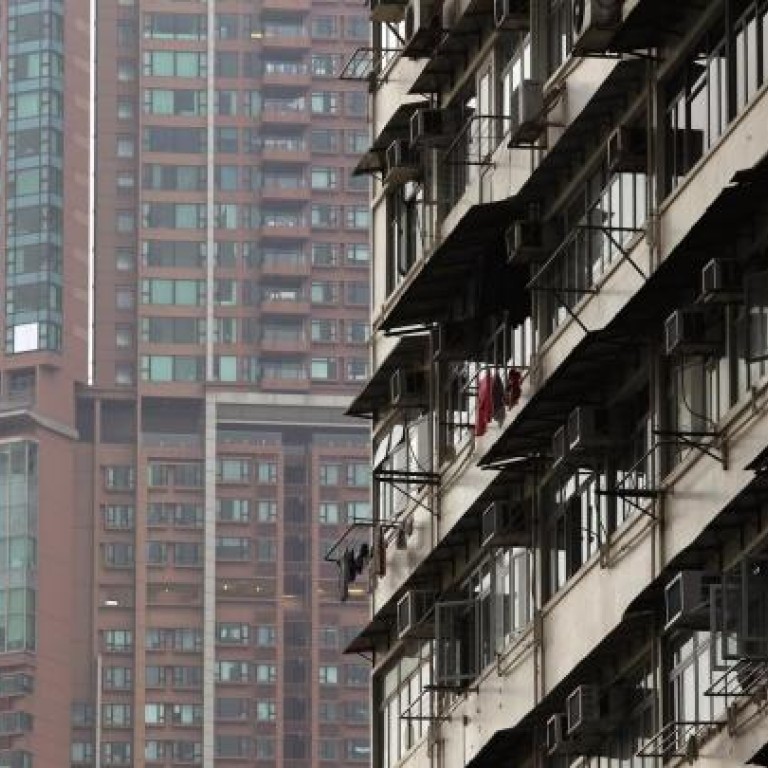
Quicker way to solve housing problem than a building binge
The government would be better off creating affordable rental flats for the poor and putting a tax on vacant investment properties
Yesterday argued that Chief Executive Leung Chun-ying's plan to double the number of homes built in Hong Kong over the next five years is likely to backfire.
Given the three-year lead time on developments, I warned that the extra housing would reach the market just as interest rates were going up and the property prices turning down.
As a result, there is a real danger that Leung's well-meaning housing policy will transform what would otherwise be a normal cyclical downturn in the property market into a deep and protracted slump.
Since then several readers have taken me to task. "That's all very clever," they said (or words to that effect). "But it's too easy just to sit there and criticise CY. If you think you've got a better idea, tell us what would you do in his shoes."
Fair enough.
The first thing I would have done is to make sure I understood what problem I was trying to deal with.
Clearly CY thought he had done that.
In his policy address on Wednesday he blamed "wrangles over land use and infrastructure projects" for "leading to sluggish land development and housing shortage".
"Shortage in the supply of housing has pushed up property prices and rental substantially," he said. "Many families have to move into smaller or older flats, or even factory buildings. Cramped living space in cage homes, cubicle apartments and subdivided flats has become the reluctant choice for tens of thousands."
So the core problem would appear to be a shortage of decent accommodation.
But the government's own figures indicate there is no housing shortage in Hong Kong. According to the latest census, there were just short of 2.37 million households in Hong Kong in 2011, a number that has been growing by 1.2 per cent a year.
And the government's latest says Hong Kong has a housing stock of 2.64 million homes.
That means the city has a surplus of around 240,000 housing units.
Some of these won't be fit for habitation. But even so, it is clear there must be many properties sitting empty. So if we are primarily concerned with providing decent accommodation for the city's population, before embarking on another major construction binge we ought to make sure we are making the best and most efficient use of the housing stock we already have.
But housing people isn't CY's only concern. He is also worried by the high cost of buying a home.
"I believe that home ownership by the middle class is crucial to social stability," he said on Wednesday, promising that the government will assist middle-income families to buy their own homes.
The high cost of buying a home in Hong Kong is a different problem - although Leung's two concerns are related.
Clearly home-ownership isn't really crucial to social stability. Germany, for example, has an ownership rate of around 42 per cent, 10 percentage points lower than Hong Kong, yet middle-class Germans are not rioting in the streets in protest.
But Hongkongers regard buying a home not as acquiring a place to live so much as making an investment they expect to generate handsome capital gains in the future.
This explains why so many flats are sitting empty. They have been bought not as homes but as capital investments. With yields so low, the owners can't even be bothered to rent them out.
At the same time, the people who complain about unaffordable flat prices are aggrieved not because they are deprived of housing, but because they are worried they will miss out on a lucrative investment opportunity.
Seen from this perspective, it makes little sense for the government to build flats for sale at subsidised prices to private buyers. The resources would be better used building affordable rental accommodation for the poor.
And in the meantime, if the government wants both to increase the supply of available housing and to bring down prices, it should impose a punitive tax on investment properties that are left vacant, as this column has argued before.
That would provide an incentive to owners either to rent them out, which would lower rents, or to sell them, which would bring down prices.
What's more, the policy would bear fruit in the short term, rather than in two to three years time, which means it could even moderate the effect of the cyclical downturn when it comes, not exaggerate the impact like CY's building binge.

